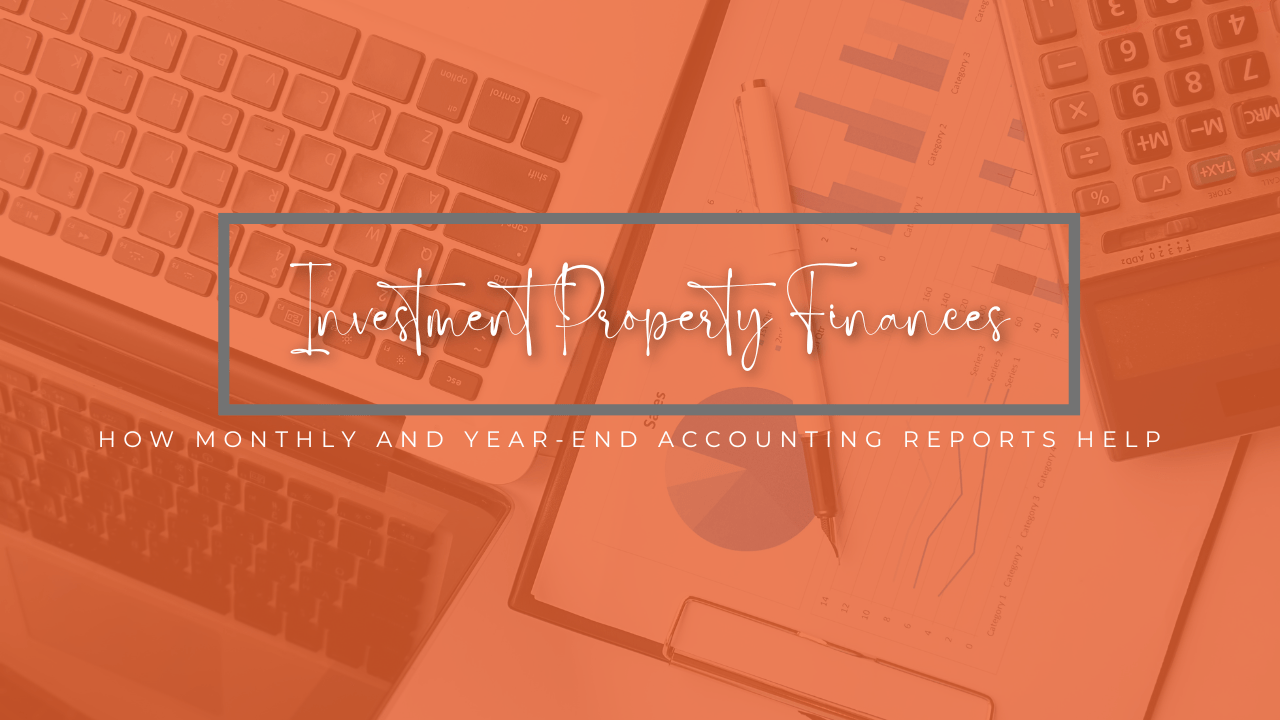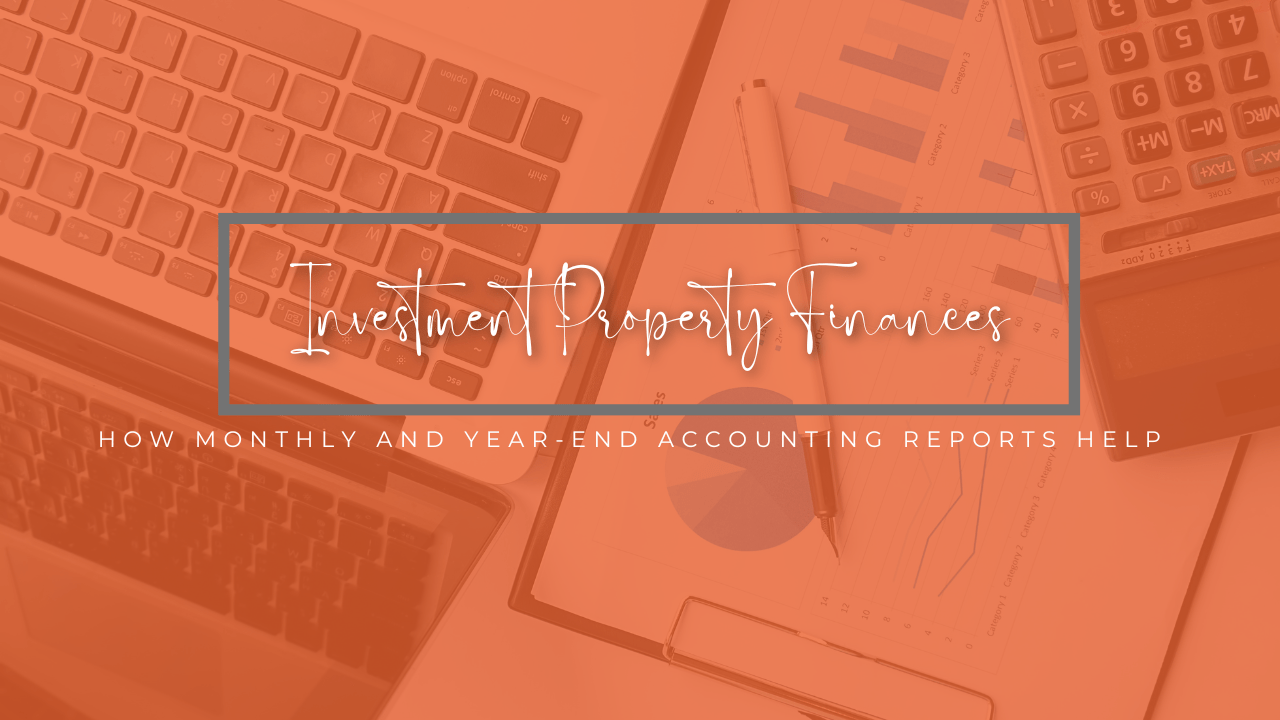
To invest successfully in real estate, you need to get a clear look at what you’re earning and what you’re spending. You need to be able to measure your actual financial results against your planning and forecasting as well as your investment goals.
How can you do this?
With excellent accounting and accurate financial reports.
You need solid accounting and record keeping processes in place if you want to know exactly where you stand financially. Accurate and detailed financial reports and documentation will help you understand where you are in the current moment and allow you to make wise decisions about your investment property’s future.
A lot of experienced real estate investors will leave the accounting to their CPA or their Atlanta property manager. You didn’t get into investing in order to drill down into the minutia of accounts payable and receivable. If you’re managing your own property, however, or you’re new to investing, you’ll need to understand the importance of investment property finances and how to organize them.
You’ll need to know how monthly and year-end financial reports can help.
Why Atlanta Investors Need Monthly Financial Reports
Why do you need a monthly financial report? Well, because rent comes in every month. That means your financial picture changes month by month, even if the amount of rent collected is the same.
Monthly accounting reports are typically a real estate investor’s best tool for keeping track of a property’s general and ongoing income and expenses. With a monthly accounting report, you’ll essentially get a snapshot of where you stand in real time. You won’t always get a detailed drill-down into what each item in the report represents. But, this will be the best report for you to glance at when you’re wondering how an asset is performing at the end of every thirty day cycle. You can see your property's financial activities and make some decisions about whether it can be left alone or whether some actions need to be taken to increase profitability or decrease expenses. This is a basic accounting tool and it’s not unique to Atlanta rental properties; you’ll find virtually every business across all industries runs a monthly accounting report.
These reports offer owners and investors a summary of a property’s performance over a set period of time.
If you’re working with Atlanta property managers, you’ll likely receive these monthly accounting reports after rent has been collected and all expenses for the month have been paid and reconciled. You’ll see the amount that was ultimately deposited into your account, and when that money hit. You’ll see any deductions for services such as landscaping, pest control, or property management.
In some cases, your monthly accounting report can include a detailed analysis of all the financial transactions that took place during the course of the month. While such a report will always include rental income, expenses, and any other sources of revenue, you can also create a report that looks at how this month is performing compared to last year at the same time.
You have the freedom to customize your monthly accounting reports into whatever you want that will help you ensure that your property is generating income and tracking expenses. This information is critical for long-term financial stability. If you’re especially curious about how vacancies are impacting your bottom line, run a monthly vacancy report. If you’re wondering why maintenance costs have been ticking upwards, run an accounting report every month that shows what’s been spent on maintenance.
Utilize the tools that you have when it comes to accounting information and report generation.
Why Atlanta Rental Property Owners Need Year-End Reports
Looking at your situation month-to-month is important for decision-making. Looking at the performance of a real estate asset over the course of a full year will help you plan for the future and set some new goals.
Year-end accounting reports provide a comprehensive overview of the financial activities throughout the year. There are some similarities to a monthly accounting report; for example, you’ll find the same information in the year-end accounting report, but it will cover the activities of the entire 12 months. There is your record of income and there, too, is your record of expenses. There’s more nuance, however, because a year is a full tenancy. Or, you’ll have a new tenant move in. There might be a security deposit returned that’s reflected in the year-end reporting. If there was an eviction or a new roof, you’ll see those expenses in the annual financials.
Investors need an annual financial report for the following important reasons:
Filing of taxes. You’ll need this year-end report to file, when you declare your income and claim your deductions. Supporting documentation may be necessary as well, but the year-end report can help you get organized and understand the numbers that you’ll be plugging into your tax return.
Identifying financial trends, which can be useful when you’re deciding whether to sell or engage in a 1031 exchange. Understanding when you’re earning more and spending more can help you decide on timing and strategy.
Analyzing the financial health of the property and the entire investment portfolio, if you have more than one property. You can compare one investment’s performance against all the others. You can see patterns and follow the data to smarter decisions.
Year-end accounting reports can be as simple as a balance sheet. Or, they can include additional information, which might be an income statement, cash flow statement, and other financial statements. It's essential to prepare and submit these reports promptly to the IRS in an effort to avoid audits as well as potential legal and financial complications.
Why Bother? Because Here are the Benefits of Creating Financial Reports
Do you really need to do all this?
The short answer is: yes. It’s important that this information is easily accessible to you, even if you consider yourself a passive investor who isn’t going to make a lot of big moves from year to year with an investment portfolio or a rental property. Why are detailed reports really so important? As experienced Atlanta property managers who use these reports ourselves, we can tell you that there are numerous benefits. Here are just a few:
It’s Easier to Spot and Track Financial Trends
As you prepare and evaluate regular financial reports, you’ll find that you can easily notice and track financial trends. Not only does this provide some valuable information about your properties specifically, but also about the market in general. When all of your rental increases are 2% this year as opposed to 10% last year, you can see that the market is settling and values have peaked.
You’re getting information about the general market and about your own investments within that market. By analyzing financial records, you can identify opportunities to reduce expenses, increase profits, and make better financial decisions. For instance, you can identify tenant behavioral trends, such as higher rent collection and payment delays, and take steps to address these trends, which could ultimately impact your property's financial health.
Financial Reports Create Accuracy and Transparency
You don’t want to estimate what you’re earning. You don’t want to guess at what you’re spending on maintenance. You want to know what those numbers are for certain. That’s why this type of financial reporting can be so helpful to owners and investors; even if you’re only renting out one home. Accurate and transparent accounting reports are essential for every landlord.
Monthly and year-end financial reports can shine a bright light on potential problems. They can help you identify any discrepancies in finances, which could result in financial complications later on. This type of reporting also ensures compliance with local and federal financial regulations and helps you identify ways to improve their financial health.
You don’t have to be an expert accountant to manage financial reports every month and every year. There are simple ways to make complex money matters easy to approach and understand. It starts with these financial reports.
Making Better Decisions
Knowledge is power. That’s a phrase you’ve surely heard before. Regular accounting reports provide you with the tools that are necessary to make financial decisions, such as deciding to purchase new properties or selling an underperforming one. These financial analyses also help identify trends in the property market and allow you to take advantage of solid real estate investment opportunities.
Monthly and year-end accounting reports are critical to your financial success. You receive the necessary financial information to make informed decisions, ensure compliance, reduce expenses, and increase revenue.
Make sure you’re preparing and utilizing accurate, detailed, and transparent accounting reports regularly to maintain financial health and understand the true value of your investment and the value of your entire portfolio. If you cannot manage to access the technology or the resources that make this possible, an Atlanta property management company can be your best resource.
 We’d be happy to tell you more about how we could utilize accounting reports for your property or properties. Please contact us at Property Services of Atlanta.
We’d be happy to tell you more about how we could utilize accounting reports for your property or properties. Please contact us at Property Services of Atlanta.

 Owner Portal
Owner Portal




